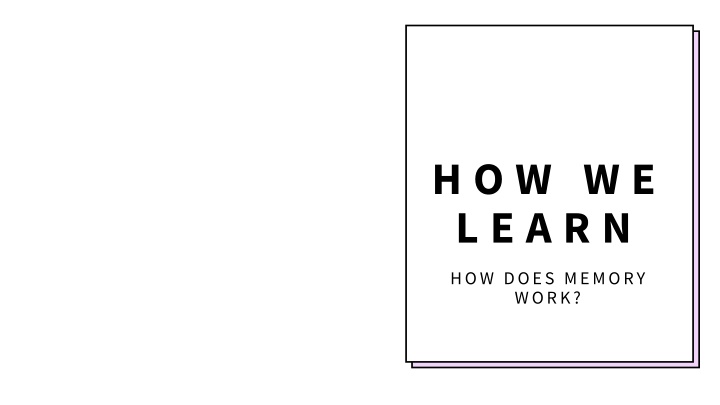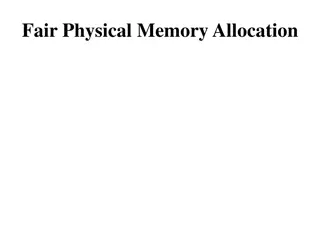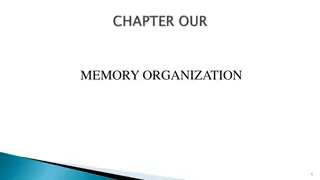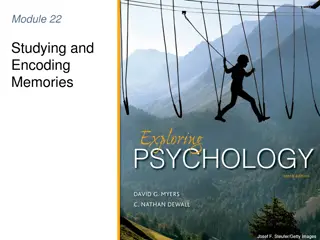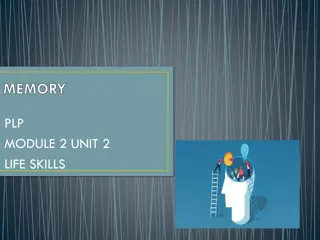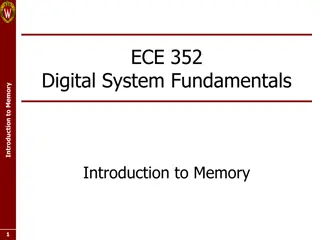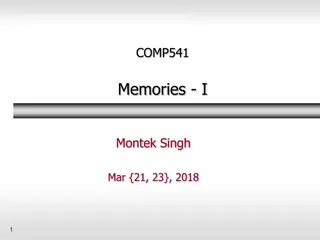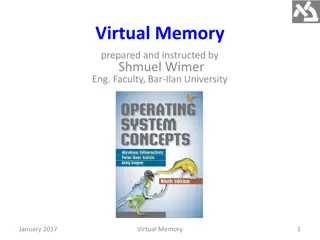Memory and Effective Study Strategies
Discover how memory works, learn about effective study strategies, explore the Ebbinghaus Forgetting Curve, and delve into the concept of schema to improve learning outcomes. Uncover the importance of revision, differentiate between ineffective and effective study methods, and engage in activities like retrieval practice to enhance memory retention.
Download Presentation

Please find below an Image/Link to download the presentation.
The content on the website is provided AS IS for your information and personal use only. It may not be sold, licensed, or shared on other websites without obtaining consent from the author.If you encounter any issues during the download, it is possible that the publisher has removed the file from their server.
You are allowed to download the files provided on this website for personal or commercial use, subject to the condition that they are used lawfully. All files are the property of their respective owners.
The content on the website is provided AS IS for your information and personal use only. It may not be sold, licensed, or shared on other websites without obtaining consent from the author.
E N D
Presentation Transcript
H O W W E L E A R N HOW DOES MEMORY WORK?
Retrieval Quiz 1. What does the word revision actually mean? 2. List at least two ineffective study strategies and why they are ineffective. 3. List at least two effective study strategies and why they are effective.
Retrieval Quiz 1. Revision means to look (vision) again (re). 2. Ineffective study strategies include re-reading notes and highlighting as they are passive. 3. Effective study strategies include retrieving learning from memory with activities like brain dumps, flashcards and quizzes.
Schema Image of brain with dots and connecting lines.
Image of spider web S C H E M A
Tractors, Trains and Toddlers Schema! Image of a tractor and a train? Timed-Pair Share; Partner A: teach the forgetting curve to your partner Partner B: teach schema to your partner You have 30 seconds each but if your partner gets stuck, make sure you question them. For example, why are toddler s schemas less developed?
Cold-Calling Quiz! 1. What does the Ebbinghaus Forgetting Curve tell us about learning? 2. What is schema? 3. How does schema help us learn new information? 4. How can we build our schema?
Desirable (adj): worth having or getting The prefix de comes from the Latin to mean down from and desidere means from the stars so to desire something originally meant awaiting what the stars would bring although this meaning has evolved and become more general to mean anything wished for and seen as worth having. The house was in a desirable location. The new oven has many desirable features such as a fan that makes it more efficient. Kindness is a desirable personality trait. What qualities are desirable in a friend? What do you think is your most desirable feature and why? Why might difficult learning be desirable?
Desirable Difficulties Desirable difficulties are learning tasks that require more effort; the reason this effort is desirable is because it is much more effective for long-term learning. Desirable difficulties include: Spacing learning so it is more difficult to remember; Interleaving different topics; Varying the conditions; Retrieving learning from memory with no cues.
Lets create a desirable difficulty! Close your book and discuss with your partner everything you both remember about the forgetting curve, schema and desirable difficulties.
How could we have made this even more difficult? 1. Discuss or write down everything we can remember about today s lesson in a week, month or year (spacing). 2. Discuss or write down everything we can remember about today s lesson after studying a different topic (interleaving). 3. Discuss or write down everything we can remember about today s lesson in a different lesson or using a different method (varying conditions of practice). How could you include desirable difficulties in your revision?
